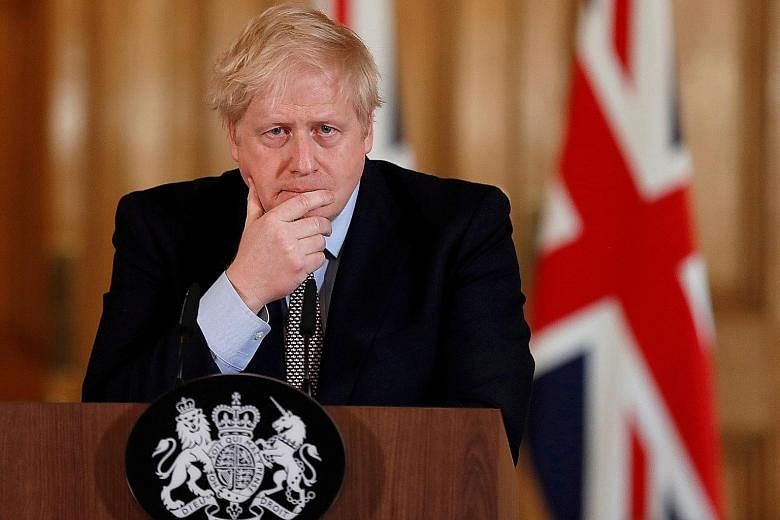LONDON • Prime Minister Boris Johnson has defeated his first party rebellion over a government decision to allow China's Huawei to have a role in building Britain's 5G phone network.
Huawei, the world's biggest producer of telecoms equipment, has been caught in a stand-off between Washington and Beijing after the United States accused it of spying on Western secrets, allegations which the firm has denied.
Britain decided in January to allow Huawei into non-sensitive parts of the country's 5G network, capping its involvement at 35 per cent This angered the US, which wants to exclude Huawei from the West's next-generation communications systems and has urged Britain to rethink.
Some senior members of Mr Johnson's Conservative Party also want Huawei eliminated entirely from Britain's 5G networks by the end of December 2022.
The government tried to placate the rebels by saying it would work towards increasing the supply of 5G telecoms gear so operators would not need to use Huawei, but it refused to commit to any timetable to ban the Chinese firm.
The rebels pushed their plan to a vote and the government, which has an 80-seat majority, won by 24 on Tuesday.
Mr Bob Seely, one of the rebels, signalled that the group would continue to pursue their cause, describing the vote as "a strong first showing" in a posting on Twitter.
The rebels wanted to amend the Telecommunications Infrastructure Bill to ensure firms termed by British security experts as "high-risk vendors" - like Huawei - will be stripped out of networks completely by the end of 2022.
The government said it did not want high-risk vendors to have any role, but in a market dominated by Huawei, Sweden's Ericsson and Finland's Nokia, some network operators were relying on Huawei. "We would like to get to the point where we won't need to have any high-risk vendors at all," Digital Minister Oliver Dowden told Parliament.
Huawei vice-president Victor Zhang said the company had been "reassured" by the government's decision in January, which would "result in a more advanced, more secure and more cost-effective telecoms infrastructure".
"An evidence-based approach is needed, so we were disappointed to hear some groundless accusations asserted," he said. "The industry and experts agree that banning Huawei equipment would leave Britain less secure, less productive and less innovative."
Mr Iain Duncan Smith, who put forward the amendment, said he wanted a timetable on completely removing high-risk vendors. "I am always flexible on the date, providing the intent and commitment to eradicate the involvement of high-risk vendors from our system, across the board, full stop," he said.
Mr Dowden said the government would work with international partners to increase the choice of vendors during this Parliament, which is due to end in 2024.
Mr Mike Rake, the former chairman of broadband and mobile company BT and an adviser to Huawei, said: "Any attempt to further restrict Huawei 5G equipment, or to remove existing 4G equipment, will not only incur very significant costs but prejudice trade relationships with China and will significantly set back the government's broadband ambitions. This, in turn, will further damage our competitiveness as an economy at what is a critical moment."
REUTERS

